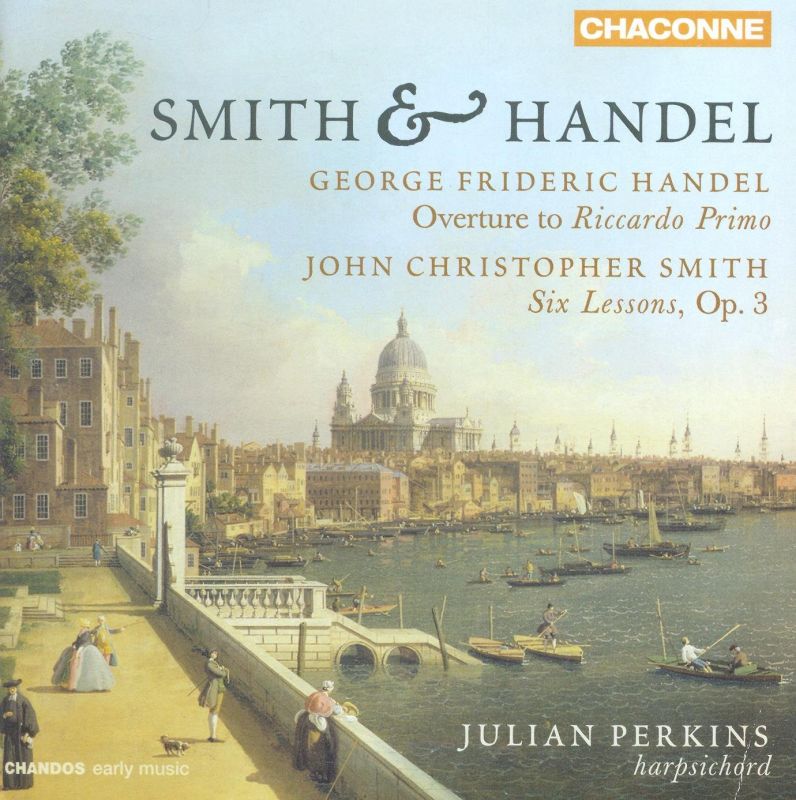JC SMITH Six Suites of Lessons HANDEL Riccardo Primo Overture
View record and artist detailsRecord and Artist Details
Composer or Director: John Christopher Smith, George Frideric Handel
Genre:
Instrumental
Label: Chaconne
Magazine Review Date: 09/2015
Media Format: CD or Download
Media Runtime: 77
Mastering:
DDD
Catalogue Number: CHAN0807

Tracks:
| Composition | Artist Credit |
|---|---|
| Riccardo Primo, Re di Inghilterra, Movement: Overture |
George Frideric Handel, Composer
George Frideric Handel, Composer Julian Perkins, Harpsichord |
| Six Suites of Lessons for the Harpsichord |
John Christopher Smith, Composer
John Christopher Smith, Composer Julian Perkins, Harpsichord |
Author: David Vickers
His music occupies a strange sort of halfway territory between the late Baroque style and the progressive early Classical mould, and Julian Perkins captures the dichotomy of mid-18th-century England’s Scarlattian obsession and the emerging rococo style in his judicious playing of Smith’s Six Suites of Lessons for the Harpsichord, Op 3 (printed by John Walsh in 1755) – although he prefaces it with Handel’s own short harpsichord arrangement of the overture to Riccardo Primo.
A single-manual English harpsichord, probably made by Mabyn and William Bailey (London, c1770) is used in flat-key suites, but for the suites in sharp keys Perkins plays a bigger Franco-Flemish double-manual instrument (each instrument is tuned to a different temperament as well as offering distinctive sonic palettes). The larger instrument is used with delicate refinement when necessary (eg in the Larghetto from No 1 in A major), whereas the Gavotte that ends No 4 in D major has crisp theatricality. The ‘fruity’ sound of the smaller English instrument is to the fore in the concluding Allegro in No 2 in C minor, in which more than a splash of Handelian repeated-note rhetoric is developed with tense chromaticism; its lute-stop is reminiscent of a softly lyrical mandolin in the central Allemande in No 3 in F major and the Gavotte that ends No 4 in B flat major. These playful lessons amply repay Perkins’s curiosity.
Explore the world’s largest classical music catalogue on Apple Music Classical.
Included with an Apple Music subscription. Download now.

Gramophone Digital Club
- Digital Edition
- Digital Archive
- Reviews Database
- Events & Offers
From £9.20 / month
Subscribe
Gramophone Club
- Print Edition
- Digital Edition
- Digital Archive
- Reviews Database
- Events & Offers
From £11.45 / month
Subscribe
If you are a library, university or other organisation that would be interested in an institutional subscription to Gramophone please click here for further information.






